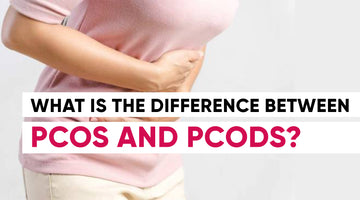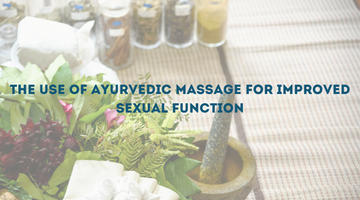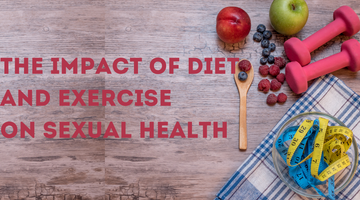
Are PCOD and PCOS the same thing? Many women become confused between the two, frequently using the terms interchangeably, particularly when attempting to understand the relationship between PCOS, PCOD, and pregnancy. Despite similarities such as being related to the ovaries and causing hormonal disturbances, both conditions are distinct.
Only a few researchers participated in the study of the prevalence of Polycystic ovary syndrome (PCOS) in various regions of India. According to the scant data available, the prevalence of PCOS in India ranges from 3.7% to 22.5%. It is difficult to define the prevalence of PCOS in India due to limited data and different regions.
Knowing the Difference Between PCOD and PCOS
What Exactly Is PCOD?
Every woman has two ovaries, which release an egg alternately each month. The ovaries produce trace amounts of androgens or male hormones. PCOD (Polycystic Ovarian Disease) is a condition in which the ovaries produce a large number of immature or partially-mature eggs, which develop into cysts. Abdominal weight gain, irregular periods, male pattern hair loss, and infertility are all common symptoms. In this condition, the ovaries typically enlarge and secrete large amounts of androgens, which can disrupt a woman's fertility and health. The best PCOD treatment often focuses on reducing the severity of such symptoms.
What Exactly Is PCOS?
In women with PCOS (Polycystic Ovary Syndrome), the ovaries produce more androgen than usual, interfering with egg development and release. Some of the eggs develop into cysts, which are small liquid-filled sacs. Instead of being released during ovulation, these cysts accumulate in the ovaries and can become enlarged.
PCOD, also known as PCOS, is a condition that affects women's ovaries, the reproductive organs that produce progesterone and estrogen hormones that help regulate the menstrual cycle, as well as small amounts of hormones inhibin, relaxing, and male hormones known as androgens.
PCOD affects nearly 10% of all women worldwide. In comparison to PCOD, women with PCOS produce more male hormones than normal. This hormonal imbalance causes them to miss menstrual periods and makes it difficult for them to conceive.
Aside from unpredictable hormonal behavior, this condition can result in
- Diabetes
- Infertility
- Acne
- Excessive Hair Growth
What Are The Most Common Signs And Symptoms Of PCOD / PCOS?
Some women notice symptoms around the time of their first period, while others do not notice until they have gained a lot of weight or are having difficulty getting pregnant. The following are the most common signs and symptoms of PCOD or PCOS in females:
- Menstruation irregularity (Oligomenorrhea)
- Menstruation is skipped or absent (Amenorrhea)
- Heavy menstrual flow (Menorrhagia)
- Excessive Hair development (face, body - including on back, belly, and chest)
- Acne (face, chest, and upper back) (face, chest, and upper back)
- Gaining weight
- Loss of hair (hair on the scalp gets thinner and fall out)
- Darkening of the skin (Neck, in the groin, and under the breasts)
PCOS / PCOD Problem Complications
Every woman wonders what happens to her body when she has PCOD or PCOS. Having higher-than-normal androgen levels can have a negative impact on your health. These are the PCOS or PCOD complications that necessitate medical attention:
- Uterine bleeding that isn't normal
- Infertility or high blood pressure Infertility
- Diabetes type 2
- Premature labor and delivery
- Syndrome of Metabolic Syndrome (risk for high blood sugar, high blood pressure, heart disease, diabetes, and stroke)
- NASH (Non-alcoholic steatohepatitis) (Non-alcoholic steatohepatitis)
- Depression (Many women end up experiencing depression and anxiety due to unwanted hair growth and other symptoms) (Many women end up experiencing depression and anxiety due to unwanted hair growth and other symptoms)
- Obstructive sleep apnea (More common in women who are overweight, causes repeated pauses in breathing during the night, which interrupt sleep)
- Cancer of the endometrium (Due to thickened uterine lining)
- Miscarriage (spontaneous loss of a pregnancy) (spontaneous loss of a pregnancy)
Future PCOS / PCOD Issues
Females who have been diagnosed with PCOD or PCOS should monitor their health on a regular basis to avoid future complications. If untreated, PCOD can lead to type 2 diabetes, obesity, and other mental issues due to hormonal imbalance, whereas PCOS can lead to serious complications such as hypertension, hyperglycemia, endometrial cancer, and pregnancy complications (premature birth/preeclampsia/miscarriage).
What Distinguishes The Two Conditions?
The severity of the condition: PCOS is a severe condition. PCOD is not considered a true disease because it can be managed with the right diet and exercise. In contrast, PCOS is a metabolic disorder.
- Causative Factors:
Polycystic Ovary Syndrome is an endocrine system disorder, whereas PCOD is a condition caused by a hormonal imbalance. Both conditions are thought to be caused by hormonal imbalances and genetics. According to the theory, high levels of male hormones prevent the ovaries from producing hormones and eggs normally. Excess androgen production has also been linked to insulin resistance and inflammation.
- Occurrence:
PCOD is more common in comparison. Almost one-third of women around the globe suffer from Polycystic Ovarian Disease. Polycystic Ovary Syndrome has a lower number of patients.
- The Effects Of PCOD And PCOS On Pregnancy:
Polycystic Ovarian Disease does not cause infertility in all women and should not be regarded as a barrier to pregnancy. In about 80% of cases, women can conceive with minimal assistance and have a healthy pregnancy. Conception can be difficult for women with PCOS due to hormonal irregularities. To conceive, one must have balanced hormonal cycles that allow the ovum to release and infuse with the sperm post-intercourse. Because the levels of androgens in Polycystic Ovary Syndrome are so high, conception can be difficult if you have the syndrome.
Maintaining good health is critical for preventing and treating hormonal disturbances and conditions. The best treatment for PCOD and PCOS will include a timely diagnosis as well as the necessary steps to overcome the syndrome and make the journey to conception a success.
Takeaway
Your period is an entirely natural occurrence. It's your body's way of preparing for pregnancy. Every month that you are not pregnant, your body excretes tissue that it no longer requires to nourish a fertilized egg. Periods are a normal and healthy part of a woman's life. They should not prevent you from exercising, having fun, and living your life. Ask your doctor, a parent, a health teacher, a school nurse, or an older sister if you have any questions about your periods. Consult your doctor or gynecologist if you notice any changes in your menstrual regularity, frequency, duration, or volume.
AADAR Ayurveda brings you a blend of herbs well-known in Ayurveda to support smooth muscle function and healthy blood flow. A natural supplement used to reduce the discomforts of menstruation like cramps, hormone imbalance, mood swings, irregular periods, or digestion. AADAR's Good Period available in both capsule and roll-on form soothes your period pain and lets you enjoy those days pain-free.
We have Health Experts who can easily connect with you and discuss your sexual concerns. You can consult your family doctor first to get the most accurate diagnosis, or you can contact our Health Expert or connect with us at +919867667699.



